第44章 CRITICISMS ON THE PRINCIPAL ITALIAN WRITERS(18)
"But, for the rest, what sovereign was ever more princely in pardoning injuries, in conquering enemies, in extending the dominions and the renown of his people? What sea, what shore did he not mark with imperishable memorials of his friendship or his vengeance? The gold of Spain, the steel of Sweden, the ten thousand sails of Holland, availed nothing against him. While every foreign state trembled at our arms, we sat secure from all assault. War, which often so strangely troubles both husbandry and commerce, never silenced the song of our reapers, or the sound of our looms. Justice was equally administered; God was freely worshipped.
"Now look at that which we have taken in exchange. With the restored king have come over to us vices of every sort, and most the basestand most shameful,--lust without love--servitude without loyalty--foulness of speech--dishonesty of dealing-- grinning contempt of all things good and generous. The throne is surrounded by men whom the former Charles would have spurned from his footstool. The altar is served by slaves whose knees are supple to every being but God. Rhymers, whose books the hangman should burn, pandars, actors, and buffoons, these drink a health and throw a main with the King; these have stars on their breasts and gold sticks in their hands; these shut out from his presence the best and bravest of those who bled for his house. Even so doth God visit those who know not how to value freedom. He gives them over to the tyranny which they have desired, Ina pantes epaurontai basileos.""I will not," said Mr Cowley, "dispute with you on this argument. But, if it be as you say, how can you maintain that England hath been so greatly advantaged by the rebellion?""Understand me rightly, Sir," said Mr Milton. "This nation is not given over to slavery and vice. We tasted indeed the fruits of liberty before they had well ripened. Their flavour was harsh and bitter; and we turned from them with loathing to the sweeter poisons of servitude. This is but for a time. England is sleeping on the lap of Dalilah, traitorously chained, but not yet shorn of strength. Let the cry be once heard--the Philistines be upon thee; and at once that sleep will be broken, and those chains will be as flax in the fire. The great Parliament hath left behind it in our hearts and minds a hatred of tyrants, a just knowledge of our rights, a scorn of vain and deluding names; and that the revellers of Whitehall shall surely find. The sun is darkened; but it is only for a moment: it is but an eclipse; though all birds of evil omen have begun to scream, and all ravenous beasts have gone forth to prey, thinking it to be midnight. Woe to them if they be abroad when the rays again shine forth!
"The king hath judged ill. Had he been wise he would have remembered that he owed his restoration only to confusions which had wearied us out, and made us eager for repose. He would have known that the folly and perfidy of a prince would restore to the good old cause many hearts which had been alienated thence by the turbulence of factions; for, if I know aught of history, or of the heart of man, he will soon learnthat the last champion of the people was not destroyed when he murdered Vane, nor seduced when he beguiled Fairfax."Mr Cowley seemed to me not to take much amiss what Mr Milton had said touching that thankless court, which had indeed but poorly requited his own good service.He only said, therefore, "Another rebellion!Alas! alas! Mr Milton!If there be no choice but between despotism and anarchy, I prefer despotism.""Many men," said Mr Milton, "have floridly and ingeniously compared anarchy and despotism; but they who so amuse themselves do but look at separate parts of that which is truly one great whole. Each is the cause and the effect of the other; the evils of either are the evils of both. Thus do states move on in the same eternal cycle, which, from the remotest point, brings them back again to the same sad starting-post: and, till both those who govern and those who obey shall learn and mark this great truth, men can expect little through the future, as they have known little through the past, save vicissitudes of extreme evils, alternately producing and produced.